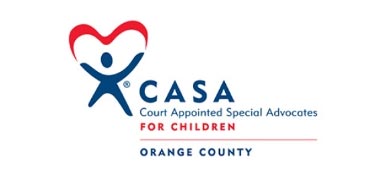
FDIC Insurance, or lack thereof, could be a new exposure to liability for a fiduciary responsible for other people’s money. A Trust account is not treated like a traditional individual bank account and special rules apply. To make matters even more complicated, the rules will be changing in less than 12 months. Trustee’s should arm themselves with the details on coverage, particularly given recent bank failures and buy-outs based on bank runs.
HERE ARE THE BASICS:
When the number of primary beneficiaries is five or less, the calculation of coverage can be determined by multiplying the number of beneficiaries by $250,000. When the number of beneficiaries is greater than five, and the aggregate balance of the accounts exceeds five times $250,000 (i.e., $1,250,000), then the calculation of coverage becomes more complicated. First, in accordance with the terms of the trust agreement, the funds are allocated to the various beneficiaries. Second, the insurance limit is applied separately to each beneficiary’s interest. To the extent that any beneficiary’s interest exceeds the limit, the excess will be uninsured. At a minimum, however, the accounts (with more than five beneficiaries) will be fully insured up to five times $250,000 (i.e., $1,250,000).
WHO COUNTS AS A BENEFICIARY FOR FDIC INSURANCE CALCULATIONS?
In some trusts, grantors designate beneficiaries which are not eligible. Those beneficiaries generally fall within two categories: ineligible and invalid. The distinction between the two is as follows: an ineligible beneficiary does not meet the requirements of an eligible beneficiary but is still able to legally receive the bequest under state law. Ineligible beneficiaries include, but are not limited to, for-profit business entities and pet trusts. For purposes of calculating deposit insurance coverage, when a beneficiary is ineligible, the result is a reversion of the funds to the single account of the grantor.
Conversely, an invalid beneficiary is unable to legally receive the bequest under state law. For example, under some state laws, a pet might be an invalid beneficiary. Depositors should consult an attorney with respect to specific state laws.
Understandably many people found these rules and calculations difficult to understand. The FDIC changed the rules related to coverage of formal and informal trusts last year. The Federal Deposit Insurance Corporation approved changes to its rules related to trusts, which will go into effect April 1, 2024 – both for irrevocable and revocable trusts. For most trust depositors with less than $1,250,000 the FDIC expects the coverage levels to be unchanged. However, the new rule may reduce coverage for those depositors who have placed more than $1,250,000 per “owner” in trust deposits at one insured institution. The new rule will combine the revocable and irrevocable trust account categories into one insurance category. The changes are effective April 1, 2024, giving bankers and depositors time to adjust to the new rule, including making any changes to avoid a potential reduction in coverage.
WHEN IN DOUBT:
If you are still unsure about coverage, play it safe to avoid liability from being sued for a breach of trust. Here’s how:
1)Make sure you never exceed $1,250,000 at any banking institution.
2)Make sure you only count individuals (not pets or entities) as beneficiaries when determining whether you reach 5 beneficiaries for maximum coverage
3)Talk to your financial advisor and banker about their institution’s re-insurance or additional coverage paid for by the institution to cover any potential loss for amounts in excess of the FDIC insurance limit.
Trustees have a unique set of duties towards beneficiaries. The CA Probate Code enables a trustee to place assets in financial institutions (CA Probate Code §16225), but it also requires a trustee to preserve trust assets (CA Probate Code §16006) and comply with the entire Prudent Investor Act under the Probate Code. If losses ensue because a trustee failed to take reasonable steps to protect assets, a trustee can and most likely will be sued by a beneficiary.
The full FDIC Rule can be found here: https://www.fdic.gov/news/board-matters/2022/2022-01-21-notational-fr-a.pdf?source=govdelivery&utm_medium=email&utm_source=govdelivery
All information gathered for this article was gathered directly from the FDIC Rules and Publications.
About the author:
Noelle Minto has been a trusts and estates attorney practicing in the State of California for 20 years and specializes in the creation and administration of trusts for high net worth individuals and business owners.
Testimonials
Charities We Support
We dedicate pro bono time, volunteer services, and a percentage of our gross revenue to these organizations. In 2023, we sponsored a refugee family of five to come to the United States and start a new life.
Each year our law firm decides as a group which charities to assist with our time, money, and expertise. Please feel free to click on any of the charities below and make a donation of your own.


















